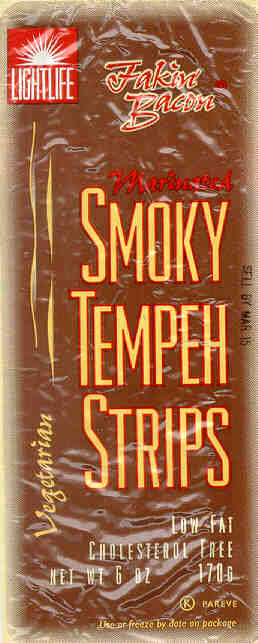 MINUTES SECONDED
MINUTES SECONDED
Despite bitter cold, the General Meeting was surprisingly full, peaking at 50 vegetarians. They were attracted by board member Electromagnetic Israel's proposal to have the GM approve its own meeting minutes, a role now limited to the board of directors.
In his financial report, coordinator Mike Eakin said "we're not sure why" losses were high in the first few months of 1999. If not, then why all the past wails about thievery? He highlighted the coop's low personnel costs: 11% compared to 21% for other coops, thanks to member labor. Israel asked whether loan records for the Building Next Door construction were computerized to help members monitor their own loans. Eakin said they were on paper. Someone suggested that lenders use a nice round number so the interest can be seen easily on the coop's repayment check.
First, we reelected five members of the Disciplinary Hearing Committee. Actually, three members' terms had already expired last year. But the DHC had let them linger in office so five could be reelected at once. A committee representative said that the DHC "protects the food coop and its members from theft and various kinds of antisocial and unacceptable behavior." She said it was better described in a pamphlet, but she'd brought only one copy. Most problems resolved by the DHC's chiding phone calls or letters. If not, the DHC calls a hearing. Until the late 1980s, before the DHC existed, the whole GM handled disciplinary hearings, which derailed the agenda and seemed unfair to the defendants -- for instance, their enemies could pack a meeting.
The committee rep cited as a recent success the indictment of a "ring of people" sneaking hundred of dollars of groceries out the door. But she said most cases dealt with members leaving immediately after signing in for their monthly workslots, instead of actually working.
When they weren't writing up their own election ballots (we were short), the five candidates gave speeches. The fourth, a professional prosecutor, shocked her audience by saying that we attract thieves, and that any time she enters the coop, she's sure that she sees one out of three people steal. "I don't think my kind of suspicions are unfounded, and where there's smoke, there's fire."
Except for one member who thought that penalties shouldn't be harsh because "it's food," many in the audience complained that DHC punishment comprised "ineffectual hand-slapping." The prosecutor candidate agreed, and said that penalties had to be harsher, including even banishment, or thieves would return. But she said that the DHC's "hands are tied" because the DHC does not itself judge or penalize accused members. Instead, it randomly shanghais a panel of members to do so, not unlike jury duty. "We've had hearings of people who had rejoined under different names and we still can't get rid of them. . . . Advocate for the strictest punishment you think appropriate!" Everyone laughed.
Discussion continued to drift from the election proposal to the broader issue stopping crime in the coop. Many said that the average coop member is unwilling to shout "J'accuse!" Lisa Nicolle Grist, a member of the coordinator-axed Project Development Team, asked if the DHC handled complaints against the coordinators. The committee rep said that such complaints were the domain of the Personnel Committee.
We reelected all five candidates, as the chair said, "overwhelmingly."
 Then Darlene gave the Building Next Door's Renovation Committee report. The new plans (the old ones having been junked when the Renovation Committee replaced the Project Development Team) are almost finished. The bank will extend its current loan, after which we'll get the construction loan and can begin building in June, with contractor bidding starting in April. A marketing consultant was hired to allocate product shelf space. Labor will probably be nonunion -- a decision guaranteed to incite a future GM bloodbath.
Then Darlene gave the Building Next Door's Renovation Committee report. The new plans (the old ones having been junked when the Renovation Committee replaced the Project Development Team) are almost finished. The bank will extend its current loan, after which we'll get the construction loan and can begin building in June, with contractor bidding starting in April. A marketing consultant was hired to allocate product shelf space. Labor will probably be nonunion -- a decision guaranteed to incite a future GM bloodbath.
Member loans for the Building Next Door are needed sooner rather than later, Darlene stressed, since they "reflect the physical health and happiness of the coop," influencing the size of the future bank loan. A coordinator then helpfully began to hand out loan pamphlets, creating the uncooperative atmosphere of a collection in church.
The next item proposed a survey of members by the Marketing Committee. Discussion was dull, and coop president Eric Schneider, antsy before Israel's upcoming minutes proposal, darted around like a fly. I shooed him away, the person at the end of the aisle shooed him away, and the woman sitting between me and him picked up her chair and moved two rows back. When I queried her after the meeting, thinking she'd been sensitive to a neighboring stinky cologne, she said Schneider "was pissing me off."
So many hands were raised to approve the survey that the cochairs declared it passed by acclamation. Later, a member complained that such a vague vote disenfranchised any opposition.
Finally, we reached the minutes item. Electromagnetic Israel said that even the appearance of reducing member governance at the GM could harm the coop; that any GM's minutes were as discussable issue as any other issue; and that members, not just directors, were entitled to discuss and vote on minutes from previous meetings.
 The first audience speaker, an Agenda Committee member, said that Israel's proposal "disregards the advice of the members" and was "a clear abuse of trust in the GM." He reminded us that member review of prior meeting minutes had been overwhelmingly dismissed at the August GM, and that since few at this night's GM remembered the August discussion, we lacked "continuity on this." He said that the August GM had already "placed trust in the board of directors to approve the minutes," and that the board members are the only people present at every meeting.
The first audience speaker, an Agenda Committee member, said that Israel's proposal "disregards the advice of the members" and was "a clear abuse of trust in the GM." He reminded us that member review of prior meeting minutes had been overwhelmingly dismissed at the August GM, and that since few at this night's GM remembered the August discussion, we lacked "continuity on this." He said that the August GM had already "placed trust in the board of directors to approve the minutes," and that the board members are the only people present at every meeting.
Another member called this politicization of minutes "utterly baffling" and "mind-blowing."
Schneider said that the August GM had rejected having any GM review of prior meetings' minutes because any meeting's attendees were unlikely to have attended such a prior meeting. He said that Israel, with board member Melinda Antirevolutionary Marx, had called minutes illegal and part of a conspiracy to take over the coop, but that the coop's lawyer had approved minutes' legality. "I'm not going to address the conspiracy" charge, Schneider added. He said board members often had to sign documents without waiting for GM permission. "Melinda signs tons of documents. Not just any member can sign checks. . . . This has to stop; you can't call member conspirators."
A member asked Israel whether there'd been any past false minutes reporting. "I'll make my comments later," said Israel. Incredulous, the chair suggested that he respond, but Israel demurred again. Another member said she wanted one of the opposing board members to address the issue. So Marx did, saying that she wanted "everyone" to vote on minutes. She said that if the GM wanted board members to approve minutes without GM consent, she'd support that, but that the GM was obligated to discuss it first.
A coordinator asked the Agenda Committee member who'd spoken before why he'd allowed this proposal on the agenda if he'd thought it valueless. He replied that the Agenda Committee doesn't substantively judge the content of proposals, and that "there have been a lot of items on the agenda that are absolutely worthless!"
The last person to speak, coordinator Allen Zimmerman, said that the GM had the right to revisit any issue, including the August decision to have minutes. He added, "I wish we could find a way to get Eric [Schneider] and [Electromagnetic] Israel to stop distrusting each other, instead of it taking up meeting time."
Speaking of meeting time, ours was up, so the chair suggested a motion to extend the GM for 15 minutes. But the audience was tired of the evening's bitching, and we were out of chips, so the motion failed 11-30. Someone "called the question" (moved to end discussion), and was seconded, so the chair asked Israel to read his proposal for a vote. Israel, who'd been studying his navel throughout the discussion, said "I did not hear that the discussion would be cut off. Bylaw --"
 But the member who'd called the question affirmed the cutoff, as did the chair, as did a growing number of audience members. Israel, who'd refused earlier to debate his own proposal, found himself stymied. Continued squabbling over this forced a floor vote to continue the meeting for three more minutes, just to vote. Israel, surly, refused to read his proposal, so Marx did, saying it was to reserve the first five minutes of each GM to review and vote on minutes.
But the member who'd called the question affirmed the cutoff, as did the chair, as did a growing number of audience members. Israel, who'd refused earlier to debate his own proposal, found himself stymied. Continued squabbling over this forced a floor vote to continue the meeting for three more minutes, just to vote. Israel, surly, refused to read his proposal, so Marx did, saying it was to reserve the first five minutes of each GM to review and vote on minutes.
The proposal failed 7-39, with 6 abstaining. Eric Schneider clapped alone. "Please, please, that's not really necessary," said the chair.
But the minutes controversy would not die. When Riana McLoughlin, the coop secretary, asked for "factual corrections" for the minutes, she found herself tilting with Marx. Marx, upon seeing the usual phrase "David Israel Fishman and Melinda Marx did not vote" on the prior meeting's minutes, protested "I don't consider myself as a zero."
Yet as McLoughlin pointed out, it was understood that "not voting" was what Marx had, with Israel, insisted on calling their prior abstention from minutes. It was also how the coop newspaper had reported it (not once, but twice). And Marx had not corrected prior minutes that had mentioned her "not voting."
But Marx insisted that she'd only "abstained" at the last meeting. McLoughlin refused to concede Marx's rewriting of history. The chair, not even required to arbitrate this part of the meeting, said that he didn't think this could be resolved in a way that would "keep everyone happy." Finally, Marx said she'd listen to the previous meeting's tapes, and would stand corrected if she was wrong. The chair gratefully thanked her.
Did Marx want to give Israel an example of misreporting, he having no ammunition before? Or was her challenge gratuitous, designed to piss off the minutes-writing secretary with a semantic challenge as nonsensical as deconstruction and contrary to Marx's own record? More likely, considering her earlier surprising concession that she'd support the minutes, she's abandoning her past position -- if she can rub the GM's nose in its empowerment of the directors. Even Israel may be tiring of the petty fight against minutes. After the directors voted unanimously, 6-0, to approve the previous decisions of the GM, even Israel joined in approving the minutes "as amended or to be amended."
During the wrap-up, reviews of the meeting were mixed. One attendee hated the backbiting and was going to reconsider her membership. But another cited the meeting's good points, and said "I just feed off it; people have heavy feelings about stuff, and it's important to hear how people work things out."
"I don't know if Israel's ever going to make the mistake of saving his comments for later again," said coordinator Zimmerman. "Having just experienced a railroad rolling over him, I'm glad someone clapped after the vote." (Unfortunately, that had been Schneider.) The chair admitted he should have pressed the meeting for more time for Israel's sake. Israel said "I feel very hurt about what happened tonight. . . . I was treated rather shabbily. . . . But the coop is much more than what happened tonight, so I'll be back."
"This post-mortem is a great idea," said a member. Everyone laughed. "We prefer 'meeting evaluation,'" said the chair.
![]() Next dispatch.
Next dispatch.
![]() Previous dispatch.
Previous dispatch.
![]() Back to list of dispatches.
Back to list of dispatches.